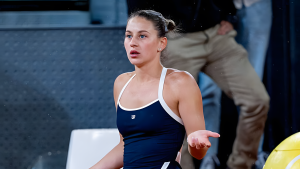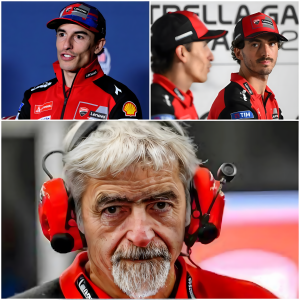In a fiery and emotionally charged quarterfinal at the 2025 Madrid Open, World No. 1 Aryna Sabalenka emerged victorious over Ukraine’s Marta Kostyuk—but not without igniting one of the tournament’s most explosive controversies. A critical moment during the match, which led to a delay in play, left Kostyuk furious and fans divided. Now, Sabalenka is speaking out about the real reason behind her much-debated decision.

A Match That Sparked More Than Just Rallies
The clash on April 30 at Manolo Santana Stadium was already poised to be intense. Sabalenka and Kostyuk battled through a tense first set, with the Belarusian edging out a tiebreak 7-6(4) after saving a set point. The second set saw Kostyuk pushing hard to level the match, leading 5-4 in the tiebreak—until a moment of controversy disrupted the rhythm.
With light rain beginning to fall, Sabalenka missed her first serve and immediately halted play. She approached chair umpire Jennifer Zhang, insisting the worsening conditions made it “impossible” to continue. Despite initial hesitation, the umpire eventually paused the match to allow the stadium roof to close—effectively granting Sabalenka a chance to reset.
When play resumed, the top seed was permitted to replay her first serve, sparking outrage from Kostyuk, who believed her momentum had been unfairly interrupted. Caught on camera, the Ukrainian fumed to her team: “She’s never winning a sportsmanship award, that’s for sure.”
Sabalenka Responds: “It Was Impossible to Serve”

In her post-match comments, Sabalenka defended her actions, stating the conditions were too dangerous to continue.
“Oh my God…! Serving while it was raining was impossible,” she told reporters. “I tried my first serve, and the water was getting in my eyes. I knew I would double fault if I kept going, so I decided the match couldn’t go on like that. I’m glad I stopped it.”
Her explanation did little to ease the criticism from fans and commentators who accused her of gamesmanship. While some supported her move—pointing out that even the umpire acknowledged worsening rain—others believed Sabalenka strategically disrupted Kostyuk’s rhythm at a crucial point in the match.
A Rivalry with Deeper Tensions
The incident wasn’t just about rain delays. The Sabalenka-Kostyuk dynamic has long been fraught, underscored by the geopolitical tensions stemming from Russia’s invasion of Ukraine. Kostyuk has consistently refused to shake hands with Russian and Belarusian players, including Sabalenka, in protest—a stance she upheld again after the match.
Their frosty relationship dates back to earlier confrontations, including Kostyuk’s 2023 criticism of Sabalenka’s public comments. In this match, their history clearly intensified the emotional stakes.
High Drama, High-Level Tennis
Despite the controversy, the level of play was exceptional. Kostyuk, ranked No. 36, saved a match point and broke Sabalenka’s serve late in the second set, pushing the No. 1 seed to the limit. Sabalenka, however, held her nerve, eventually taking the match 7-6(4), 7-6(7).

After the match, Kostyuk posted a heartfelt message to her fans:
“Yesterday’s match tested everything—focus, resilience, patience. I gave it my all. Your support reminded me why I love this sport.”
Sabalenka, meanwhile, continued her dominant form in Madrid, defeating Elina Svitolina in the semifinals and setting up a final showdown with Coco Gauff. Supported by her boyfriend Georgios Frangulis, she appeared unfazed by the ongoing backlash.
A Flashpoint for Tennis Ethics
The incident has reignited debate over rain delay protocols and the ethics of player-initiated stoppages. Some argue the rules should be clearer to avoid such contentious situations in the future.
Whether Sabalenka’s actions were necessary or opportunistic remains a hot topic. What’s undeniable is that her decision—and the resulting fallout—will be remembered as one of the defining moments of the 2025 Madrid Open.
As Sabalenka chases her third title in Madrid, she does so under a cloud of controversy, having crossed a line between gamesmanship and gamesaving—depending on whom you ask.





